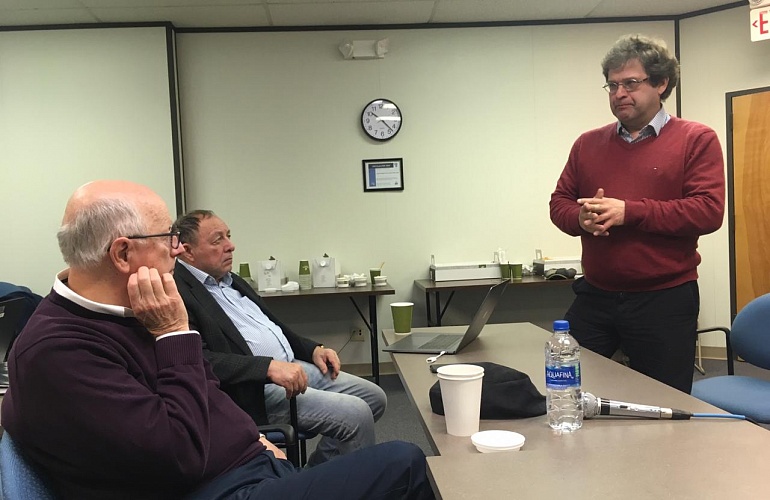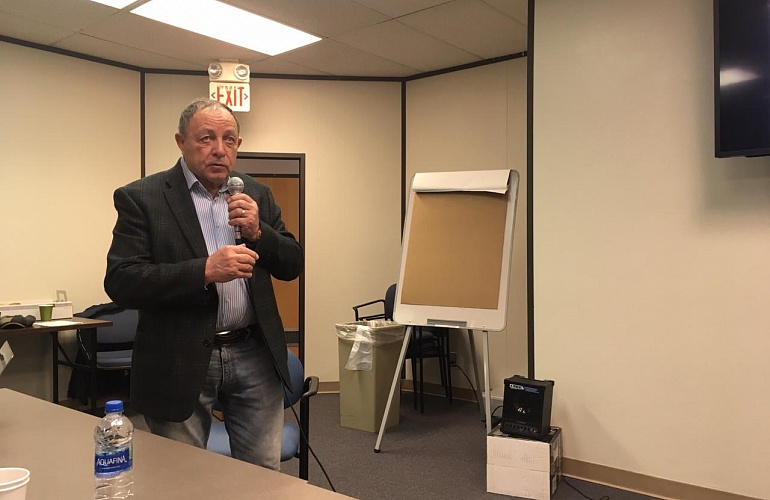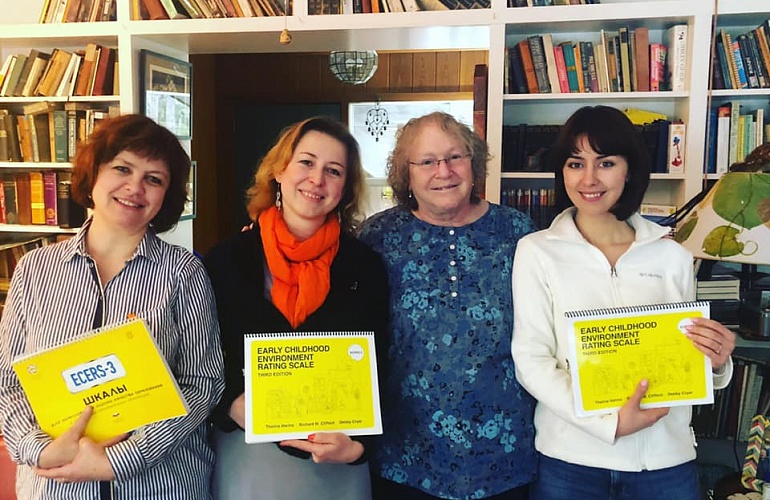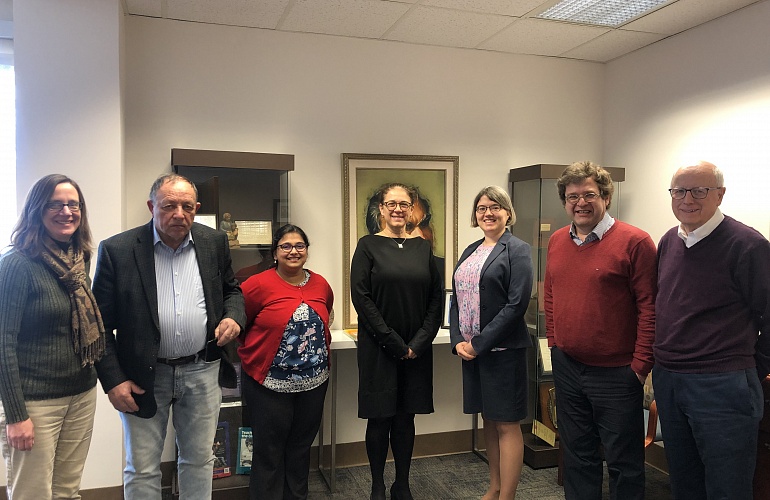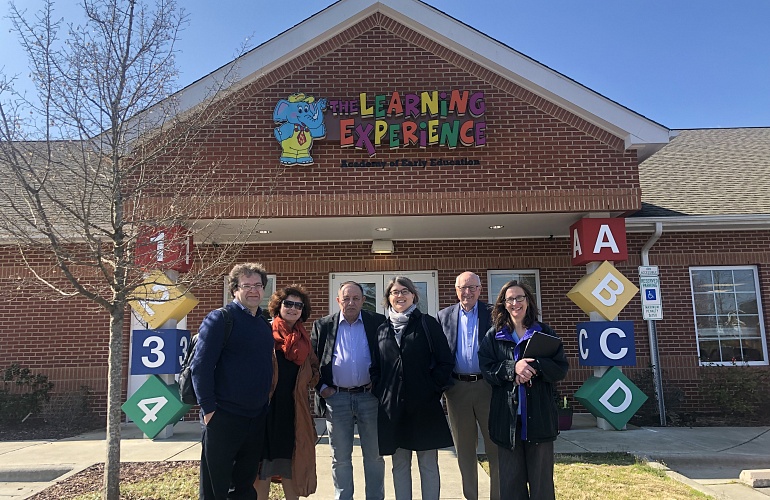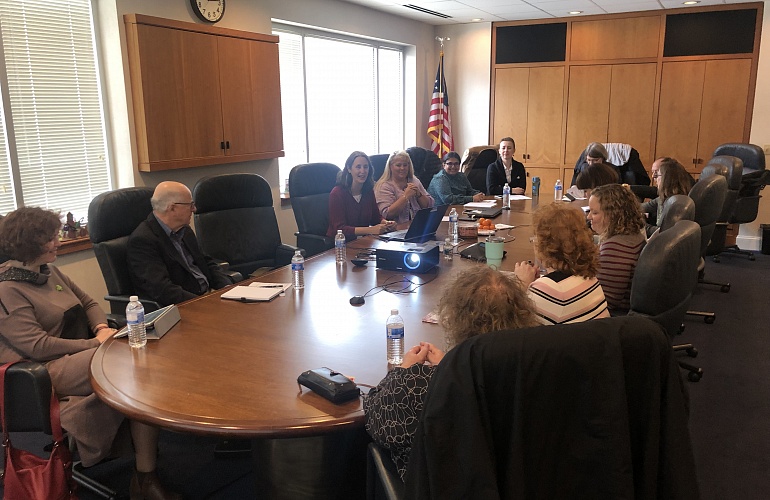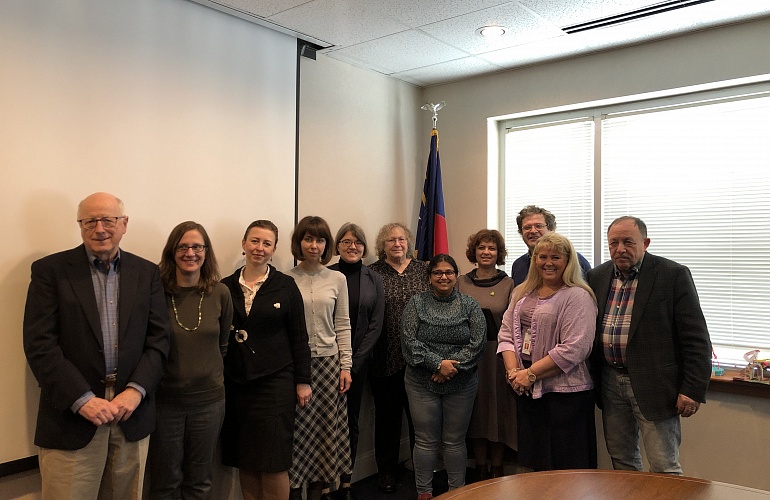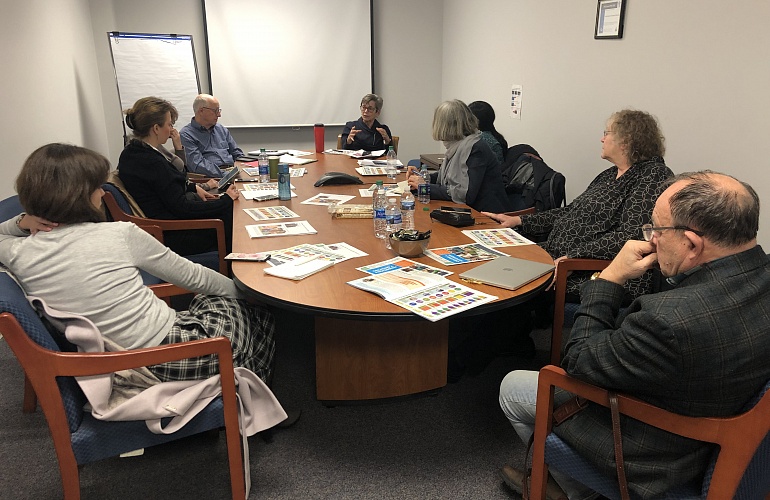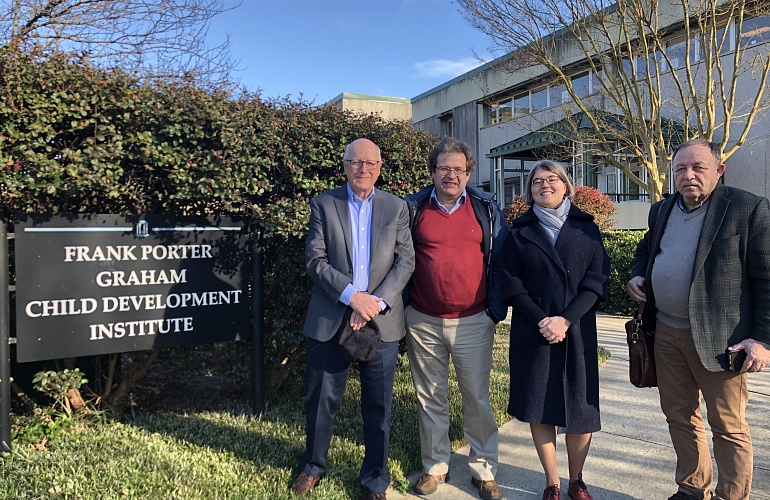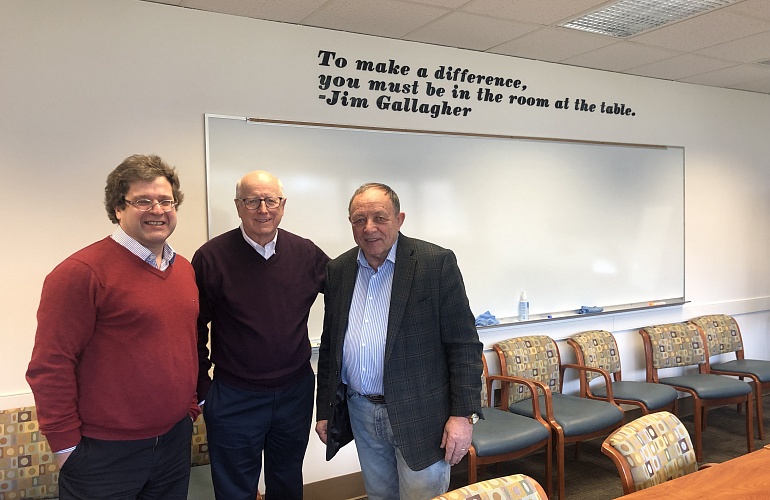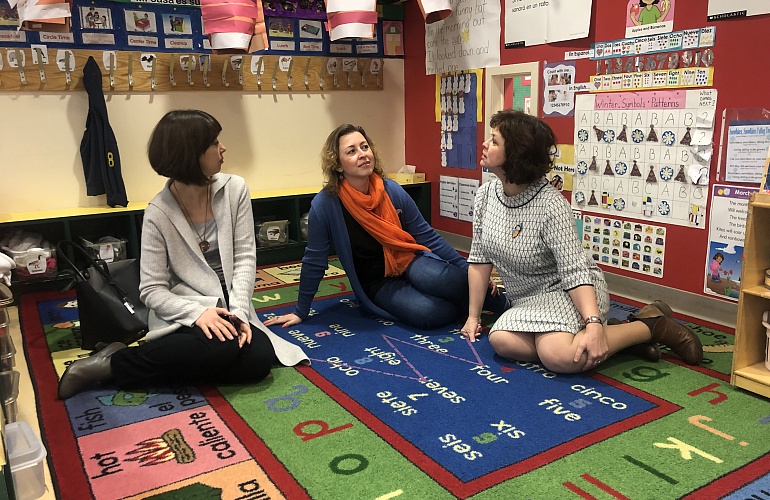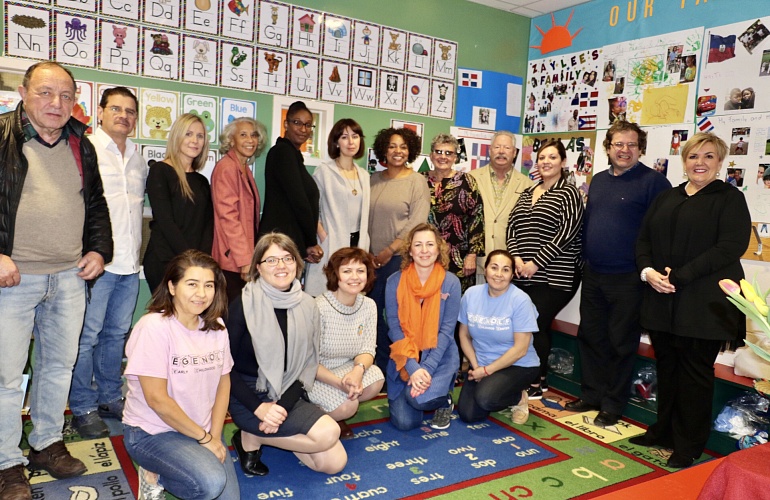On March 17—27, the researchers of the Laboratory of Child Development at the MCU’s Institute of System Projects visited the University of North Carolina at Chapel Hill, U.S. , within the framework of the cooperation program between MCU and the World Bank. The visit was dedicated to sharing best practices and results of the research projects in the field of assessment and development of pre-school education quality. The University of North Carolina at Chapel Hill (UNC), one of the oldest state universities in the US, is a dynamic research center that ranks No 56 by the Times Higher Education World University Rankings (THE) 2019.
The researchers of the Laboratory of Child Development met with their colleagues from the Frank Porter Graham Child Development Institute (FPG), research unit of UNC. The Institute comprising 300 scientific staff is one of the leading centers of child development research in the U.S.
Professors Nikolay Veraksa and Igor Shiyan presented reports at the traditional workshop held by the Institute. The colleagues discussed the ways of implementing L.S. Vygotsky’s ideas in the contemporary pre-school education, shared the results of the research that applies the ECERS, considered the prospects of assessing pre-school educational programs in terms of their impact on children’s thinking.
The meeting with Aysenil Belger, Director of FPG, featured the discussion of the possible areas for collaborative research.
One of the highlights of the visit was the workshop with the ECERS developers Debby Cryer and Dick Clifford, and one of the key FPG researchers Noreen Yazejian, that was dedicated to the theoretical grounds of the ECERS and the prospects of developing assessment scales.
The MCU researchers held a fruitful discussion with Sue Russel, Director of the T.E.A.C.H. Early Childhood National Center, and FPG representatives Donna Bryant, Sandy Hong, and Ellen Peisner-Feinberg, where they analyzed the various existing research and efficient steps for systematic improvement of pre-school educational services. At the meeting with Chih-Ing Lim and Tracey West the researchers discussed the experience and technologies of training teachers for pre-school education; with Irina Mokrova they compared mathematical tools for research data processing.
Another important meeting was held with Raymond Benjamin Farrow, Associate Provost for Global Affairs, UNC, featuring the discussion of prospects for collaborative research in the field of education.
The representatives of the World Bank Mariya Ustinova and Kanupriya Misra shared the organization’s experience of supporting early childhood research. The parties agreed upon further development of cooperation between MCU and UNC.
The developers of the ECERS, ITERS, FCCERS, and SACERS scales from the Environment Rating Scale Institute (ERSI), affiliated to FPG, shared with their MCU colleagues the experience of training and certifying the ECERS experts. Certified ECERS experts Irina Vorobiyova, Tatiana Le-van, and Olga Shiyan had a unique opportunity to participate in a series of expert visits to kindergartens with Debby Cryer, in order to confirm the reliability of ECERS-3 assessments. The MCU experts achieved 90 % of reliability verifying their qualifications of ‘gold’ and ‘anchor’ level which enable them to hold similar workshops and train ECERS experts.
The experts visited six kindergartens and pre-school education centers that apply programs such as Head Start, High Scope, Creative Curriculum, Teaching Strategies, Learning Experience with the groups of children of various ages: from 6-week babies to children of age 5.
Despite quite a complicated funding system, a number of different types of government support, and heated discussions aimed at defining what is best for children, the most of American states introduce the Quality Rating and Improvement System (QRIS) for kindergartens. The system is aimed at selecting the best kindergartens and providing them with funding and professional development opportunities. The assessment criteria and the ranking system in different states are not unified (e.g. the requirements to the child/adult ratio in the groups or the education level of kindergarten teachers). However, the tools such as ECERS, ITERS, CLASS are frequently used to define the general concept of high quality education and the projects that need support for its improvement.
The MCU researchers visited the Division of Child Development and Early Education of North Carolina to learn about the quality assessment system of the state and the methods for quality improvement of kindergarten practices. Mariya Ustinova and Kanupriya Misra shared the experience of the World Bank in implementing projects aimed at improving pre-school education quality.
The MCU team also visited the Egenolf Early Childhood Center in New Jersey that is accredited by the National Association for the Education of Young Children (NAEYC) and has an unusually high average score by the ECERS. Dr. Lorraine Cooke, Executive Director of the Center, spoke about the quality control management and special aspects of working by the High Scope Program that is highly demanding in terms of educational standards.
For the researchers of the MCU’s Laboratory of Child Development, the visit to the U.S. was very eventful, informative, and quite nourishing for the Laboratory’s research agenda.


